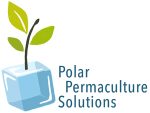Shearwater consultancy provide a range of consultancy services, centred on helping organisations benefit from the circular economy.
My role varies according to the needs of my clients – adviser, researcher, analyst, communicator, catalyst – or often a mix of these. I provide insight, write briefing papers, analytical and strategic reports, carry out feasibility studies, connect people and businesses, deliver training, find funding and manage projects.
I work with a wide range of organisations – from entrepreneurs setting up innovative new enterprises to public agencies looking to help develop a circular economy. Whether on a one-off commission or a longer-term role, I work either directly with my clients, or alongside other trusted consultancies.
I can help you understand, explore and develop opportunities in the circular economy.














